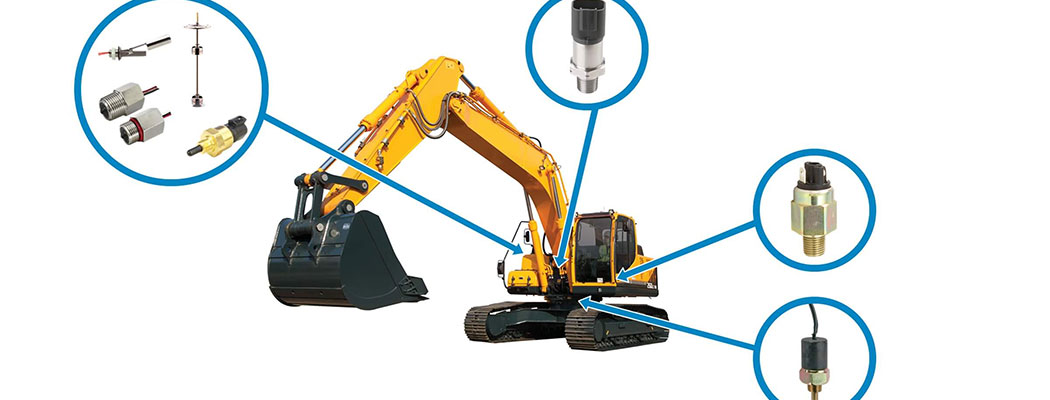From harsh environments to high shock and vibration and extreme temperatures, Off-Highway Vehicles (OHV) are exposed to conditions that test their limits. And in this industry, time lost due to equipment malfunctions can be extremely costly and disruptive events.
However, with Gems accurate and reliable sensors and controls, you can count on dependable performance in harsh, demanding environments. This lets OHV end-users focus on getting their jobs done and spending less time dealing with downtime events.
As shown below, several Gems solutions are crucial to keeping the vehicle safe – from coolant warnings to the hydraulic braking system. Here’s a look at the varied applications within the excavator example and the Gems solution deployed:

Load weighing safety system
- Product: 3200 Series Pressure Transducer
Transmission hydraulic charge system
- Product: 3200 Series Pressure Transducer
Spring applied hydraulic brake system
- Product: PS61 Pressure Switch
Transmission oil high temperature switch
- Product: PDTF Series Temperature Switch
Coolant warning
- Product: LS-7 Series Single Point Level Switch
Hydraulic oil measurement
- Product: ELS-1150 Series Single-Point Level Switch
Fuel oil measurement
- Product: CAP-300 Single Point Level Switch
Differential gear box oil measurement
- Product: LS-700 Series Multi-Point Level Switch
Other applications Gems products can be used for in Off-Highway Vehicles include: lube oil pressure monitoring, load monitoring, hydraulic pump monitoring, hydrostatic transmission pressure, over load protection, oil monitoring and fuel monitoring.
Gems Sensors has been continuously improving the design and manufacturing process of fluid sensors in the Off-Highway Vehicle (OHV) Industry. With decades of experience, Gems has a unique understanding of the most sophisticated applications in OHV, and delivers fluid sensors that measure up to today's - and tomorrow's - critical requirements.
 SEARCH OUR RESOURCE CENTER
SEARCH OUR RESOURCE CENTER

